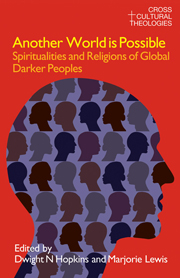Book contents
- Frontmatter
- Dedication
- Contents
- Acknowledgements
- Contributors
- Introduction
- Part I India
- Part II Japan
- Part III Australia
- Part IV Hawaii
- Part V England
- 7 Theology, Violence and the “Other”
- 8 Another Kind of Black
- Part VI South Africa
- Part VII Botswana
- Part VIII Zimbabwe
- Part IX Ghana
- Part X Cuba
- Part XI Jamaica
- Part XII Brazil
- Part XIII USA
- Endnotes
- Select Bibliography
- Index of Subjects
- Index of Names
7 - Theology, Violence and the “Other”
from Part V - England
- Frontmatter
- Dedication
- Contents
- Acknowledgements
- Contributors
- Introduction
- Part I India
- Part II Japan
- Part III Australia
- Part IV Hawaii
- Part V England
- 7 Theology, Violence and the “Other”
- 8 Another Kind of Black
- Part VI South Africa
- Part VII Botswana
- Part VIII Zimbabwe
- Part IX Ghana
- Part X Cuba
- Part XI Jamaica
- Part XII Brazil
- Part XIII USA
- Endnotes
- Select Bibliography
- Index of Subjects
- Index of Names
Summary
One of my earliest memories is of standing in a playground of my primary school, aged five, as the only Black child being taunted by a larger group of White pupils. This was Bradford, in the North of England, and the year was 1969. I was the eldest child of Caribbean migrants who arrived in Britain in the winter of 1957. They came to Britain as strangers who were different and found the experience a painful and dispiriting one.
Admittedly, 1969 seems like a whole lifetime away. As I reflect upon my life as a Black British person in his early forties, in the year 2006, I believe that things are so much better for Black people now in Britain. Britain in 2005 is very different from what it was in 1969. It is argued that the lessons of multi-culturalism have supposedly made us all a more tolerant nation. Britain, as a nation, is now able to deal with strangers and outsiders differently than it did all those years ago. However, a number of weeks ago, there was an incident in my home city of Bradford. A family of asylum seekers living on a housing estate in the city were subjected to a prolonged bout of intimidation and harassment from the locals. This was not 1969, nor was it in a seemingly innocent playground orchestrated by primary school children who did not know any better. In fact, this was 2005 and the bullies were adults.
- Type
- Chapter
- Information
- Another World is PossibleSpiritualities and Religions of Global Darker Peoples, pp. 97 - 108Publisher: Acumen PublishingPrint publication year: 2009



